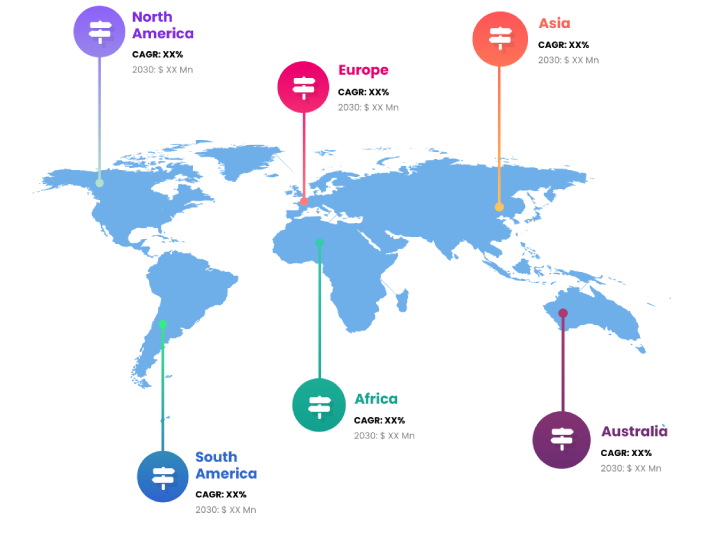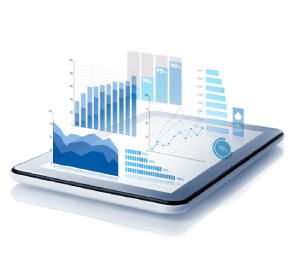Natural gas's utilisation in any capacity has grown in significance as a result of attempts to limit emissions of greenhouse gases. This, in addition to developing technology that will soon give consumers a record of their energy usage, is what's propelling the smart petrol business forward. However, the technological benefits and economic feasibility of this market will enable it expand to many nations during the projection period, while being relatively new and present in fewer countries at the moment. Today, gas is the most important resource for domestic uses including cooking, hot water production, and space heating. Because of this realisation, gas pipes are being installed in several nations to bring natural gas to every home in the nation. An accurate petrol metre reading, the elimination of manual intervention, the storage of usage information, the prevention of unreported consumption, and the analysis of monthly rates are just a few of the many benefits of using a petrol metre. Advanced metering infrastructure and automatic metre reading are the two most common varieties of smart petrol metre. In contrast to conventional metres, a smart metre may provide accurate digital readings of energy usage. Because of this, researching petrol usage is straightforward and accurate.
The pressure, volume, and temperature of the gas in the pipeline are automatically measured by modern smart gas metres. Next, we must ensure that everyone has access to gas by installing smart gas metres in all types of buildings. The smart petrol metre sector has contributed significantly to global GDP thanks to government norms and initiatives. The same is true of the smart gas metre makers and the gas exploration businesses who work with them. The market will continue to develop rapidly over the next few years because there will be no variation in petrol metres. In addition, the worldwide smart petrol metre market has seen double-digit growth in recent years due to rising safety concerns and norms. Digital technologies are predicted to improve global connectivity, efficiency, reliability, and sustainability during the next few years. New digital applications, like ridesharing, smart home devices, and 3D printing, are made possible by developments in data analytics and communication. The production of cutting-edge smart metres is aided by the constant improvement of the communication network infrastructure. The proliferation of smart metres is facilitated by the proliferation of supporting network technologies. The smart petrol metre market is expanding because manufacturers are consistently putting out cutting-edge models that work with the expanding network infrastructure.
Smart gas metres can automatically measure pressure, volume, and temperature of the gas as it moves through the pipeline. In order to guarantee that all buildings, whether commercial or residential, have access to gas, the next step is to install smart gas metres. The global GDP has increased as a result of government regulations on the smart petrol metre industry. Companies involved in gas exploration can aid those making smart gas metres by working together. Since there are no inconsistencies in gas metering, the industry is set to expand rapidly over the next few years. In addition, the market for smart petrol metres has grown by double digits over the past few years due to increased safety rules and concerns.
The Internet of Things (IoT) is a network of devices, buildings, and other items that can exchange and receive data wirelessly. As more people use connected devices, digitization has accelerated across many sectors, including the gas and electricity industries. Grid operators and energy firms may now supply cutting-edge energy services thanks to IoT communication networks. Since many utilities lack the resources to own and run a communication network, the increased adoption of NB-IoT will pave the way for smart gas metering for new customers. The percentage of smart petrol metres that include cellular IoT is predicted to increase from less than 10% in 2018 to 30% by 2025. Thus, digitization is providing various advantages to daily operations, including better regulation of gas quality and reduced costs.
Smart petrol metres capture information that can be used to track customer activities. The European Union and the United States' Energy Information Administration both agree that smart petrol metres' intermittent measurements of utility use can expose significantly more information about consumers, including the use of residential appliances and housework chores. The business value of data on utility consumption is substantial, with applications including advertising and marketing. Smart petrol metres can also serve as a backbone for widespread monitoring. Smart petrol metre data, however, is susceptible to hacking and other forms of data breach. Law enforcement, tax authorities, insurance firms, and others may be interested in the information supplied by smart petrol metres about an individual's energy use habits. Therefore, government authorities such as the US EIA and European Data Protection Supervisory Authorities are developing new data protection guidelines for smart petrol metre operations in response to these highlighted vulnerabilities relating to the security of personal data. This worry about privacy and security is likely to be a major factor holding back the market.

Report Coverage
Global Smart Gas Meters research report categorizes the market for global based on various segments and regions, forecasts revenue growth, and analyzes trends in each submarket. Global Smart Gas Meters report analyses the key growth drivers, opportunities, and challenges influencing the global market. Recent market developments and Smart Gas Meters competitive strategies such as expansion, product launch and development, partnership, merger, and acquisition have been included to draw the competitive landscape in the market. The report strategically identifies and profiles the key Smart Gas Meters market players and analyses their core competencies in each global market sub-segments.
| REPORT ATTRIBUTES | DETAILS |
|---|---|
| Study Period | 2017-2030 |
| Base Year | 2022 |
| Forecast Period | 2022-2030 |
| Historical Period | 2017-2021 |
| Unit | Value (USD Billion) |
| Key Companies Profiled | Siemens AG. (Germany), Schneider Electric (France), Landis+Gyr (Switzerland), Aclara Technologies LLC (U.S.), Xylem, Inc. (U.S.), Badger Meter, Inc. (U.S.), Itron Inc. (U.S.), Honeywell International Inc. (U.S.), EDMI (Singapore), DIEHL Metering (Germany), Apator Group (Poland), Kamstrup A/S (Denmark), and Zenner (Germany) |
| Segments Covered | • By Product |
| Customization Scope | Free report customization (equivalent to up to 3 analyst working days) with purchase. Addition or alteration to country, regional & segment scope |
Key Points Covered in the Report
- Market Revenue of Smart Gas Meters Market from 2021 to 2030.
- Market Forecast for Smart Gas Meters Market from 2021 to 2030.
- Regional Market Share and Revenue from 2021 to 2030.
- Country Market share within region from 2021 to 2030.
- Key Type and Application Revenue and forecast.
- Company Market Share Analysis, Smart Gas Meters competitive scenario, ranking, and detailed company
profiles. - Market driver, restraints, and detailed COVID-19 impact on Smart Gas Meters
Market
Competitive Environment:
The research provides an accurate study of the major organisations and companies operating in the global Smart Gas Meters market, along with a comparative evaluation based on their product portfolios, corporate summaries, geographic reach, business plans, Smart Gas Meters market shares in specific segments, and SWOT analyses. A detailed analysis of the firms' recent news and developments, such as product development, inventions, joint ventures, partnerships, mergers and acquisitions, strategic alliances, and other activities, is also included in the study. This makes it possible to assess the level of market competition as a whole.
List of Major Market Participants
Siemens AG. (Germany), Schneider Electric (France), Landis+Gyr (Switzerland), Aclara Technologies LLC (U.S.), Xylem, Inc. (U.S.), Badger Meter, Inc. (U.S.), Itron Inc. (U.S.), Honeywell International Inc. (U.S.), EDMI (Singapore), DIEHL Metering (Germany), Apator Group (Poland), Kamstrup A/S (Denmark), and Zenner (Germany)
Primary Target Market
- Market Players of Smart Gas Meters
- Investors
- End-users
- Government Authorities
- Consulting And Research Firm
- Venture capitalists
- Third-party knowledge providers
- Value-Added Resellers (VARs)
Market Segment:
This study forecasts global, regional, and country revenue from 2019 to 2030. INFINITIVE DATA EXPERT has segmented the global Smart Gas Meters market based on the below-mentioned segments:
Global Smart Gas Meters Market, By Product
Diaphragm
Turbine
Rotary Piston
Others
Global Smart Gas Meters Market, By End User
Residential
Commercial
Industrial
Global Smart Gas Meters market, Regional Analysis
- Europe: Germany, Uk, France, Italy, Spain, Russia, Rest of Europe
- The Asia Pacific: China,Japan,India,South Korea,Australia,Rest of Asia Pacific
- South America: Brazil, Argentina, Rest of South America
- Middle East & Africa: UAE, Saudi Arabia, Qatar, South Africa, Rest of Middle East & Africa
You will get in-depth and extensive smart gas meters market market research and competitor analysis for your business to help you develop more profound insights into the smart gas meters market Market.
Through INFINITIVE Data Expert is a professional Market Research services, I will identify the smart gas meters market market size, demand & opportunities, growth rate, and target audience with a comprehensive analysis of your competitors.



